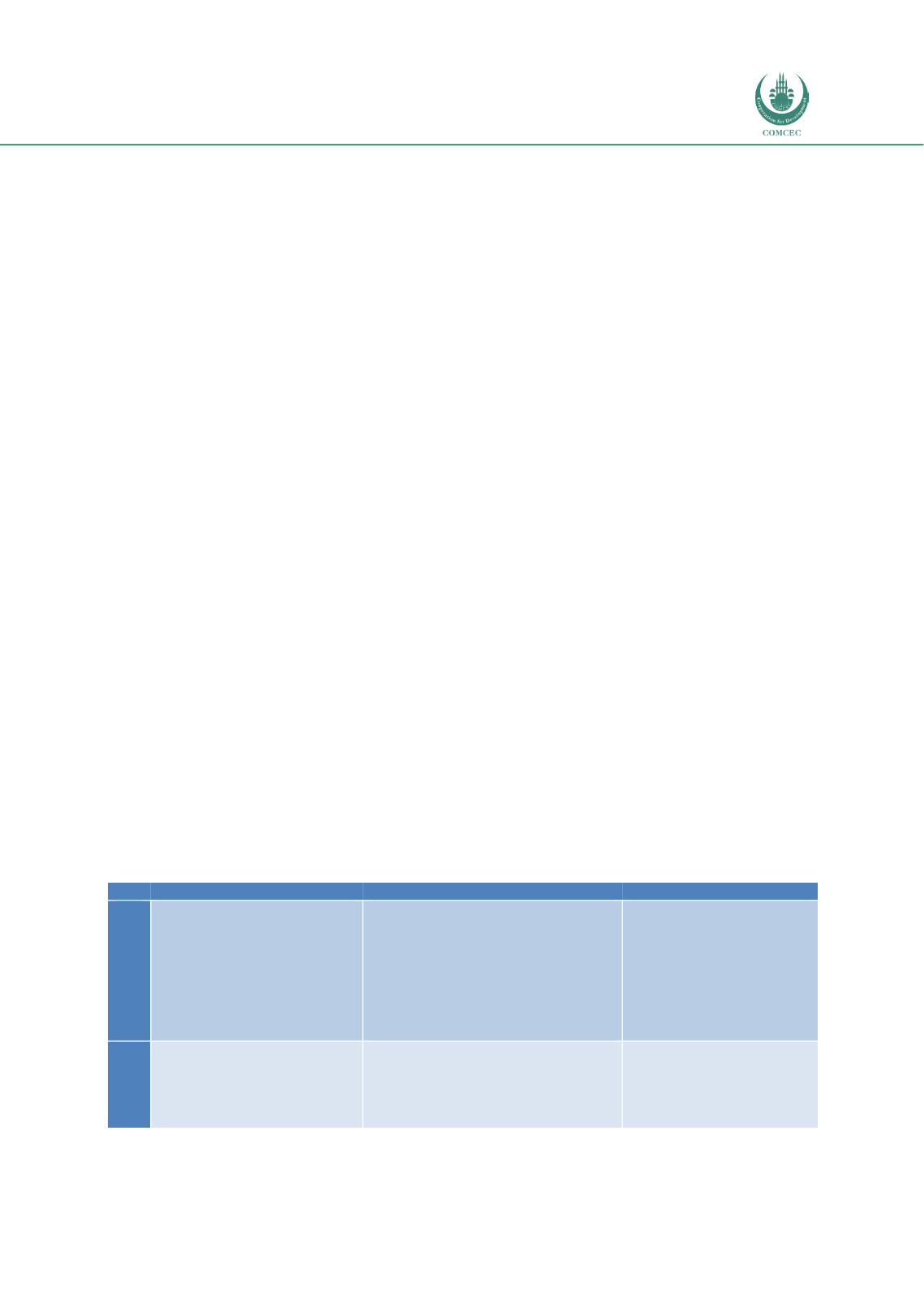

Infrastructure Financing through Islamic
Finance in the Islamic Countries
177
had a total value of RM 140.8 billion in assets in 2017 with 49.7% invested in Shariah-
compliant assets.
Another potential source for Shariah-compliant funds for the infrastructure sector in some
countries is sovereign wealth funds. While in most cases these funds invest in the equity of
some of the key infrastructure-related GLCs, they can also raise further funds for projects by
issuing sukuk. For example, the strategic investment fund created by the Ministry of Finance in
Malaysia, Khazanah Nasional Berhad, had assets amounting to RM 157.2 billion in 2017 and
had investments in sectors such as power, healthcare, transport and logistics, and
infrastructure and construction. Other than investing in key infrastructure sectors that can
promote long-term economic growth, Khazanah also plays a catalytic role in the development
of Islamic finance. Similarly, Public Investment Fund (PIF), the sovereign wealth fund of Saudi
Arabia has investments in many infrastructure-related companies related to the power, water
utility and sewerage, telecommunications and transportation sectors.
While Islamic nonbank financial institutions can potentially play an important role in
providing alternative sources of funds for infrastructure development, the key limiting factor is
their size and underdevelopment. Chapter 2 shows that global takaful assets are valued at USD
42.5 billion and assets of other Islamic financial institutions are worth USD 124.4 billion.
Moving forward, there is a need to develop these sectors to not only provide the relevant
financial services such as takaful and pension to different stakeholders but to also accumulate
funds that can be used for long-term investments.
The case of the UK shows the facilitative role that governments can play to provide a
framework where nonbank financial institutions can contribute to the infrastructure sector. As
indicated in Chapter 4, the HM Treasury, National Association of Pension Funds and Pension
Protection Fund launched the Pensions Infrastructure Platform (PIP) that invests in the
infrastructure sector. The Association of British Insurers also initiated the Insurers’
Infrastructure Investment Forum to have a platform and dialogue of how the insurance
companies can invest in infrastructure projects. The governments in OIC member countries
can take similar initiatives and establish a Shariah-compliant infrastructure fund in which both
Islamic and conventional nonbank financial institutions can place funds for investments in
infrastructure projects. The policy recommendations to increase the role of Islamic nonbank
financial institutions in infrastructure development are outlined in Table 5.6.
Table 5. 6: Policy Recommendations for Islamic Nonbank Financial Institutions
No.
Recommendations
Specific Steps
Implemented by
5.1
Increase the share of Islamic
nonbank
financial institutions in
infrastructure investments
Enlarge the family of the takaful
sector
Establish new, or increase the
share of, the Shariah-compliant
component in pension funds
Increase the share of the Shariah-
compliant component in
sovereign wealth funds
Industry players
Regulatory bodies
5.2
Establish new Islamic
Nonbank Financial
Institutions for increasing
investments in
infrastructure projects
Develop a national infrastructure
bank
Develop national infrastructure
funds/platforms
Industry players
Relevant government
ministries
















